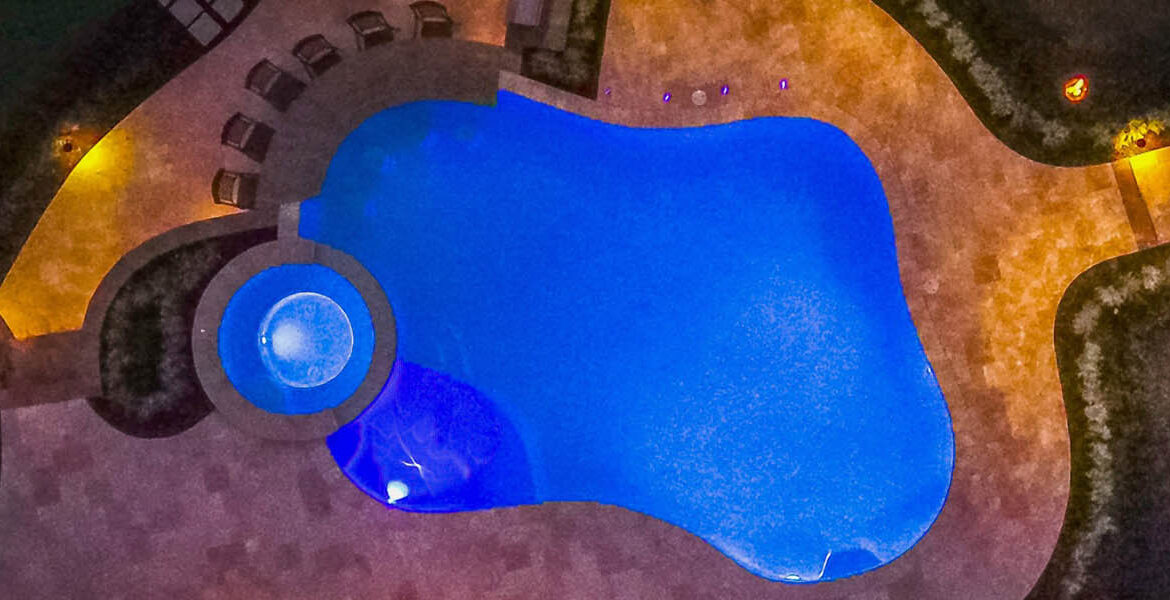
March 22, 2017
You spent time and money creating your dream inground pool. Now you’re enjoying summer evenings relaxing with your family or spring morning swimming laps for exercise. Yet if you want the joy to last as long as possible, you must take steps to protect your investment and keep your pool in the best shape possible. Here’s some tips for prolonging your inground pool’s life.
Keep Chemicals Balanced
One of the most important steps you can take in safeguarding your pool is to balance the chemicals. Following are major factors to remember to keep your pool water fresh and clean.
Chlorine. Find a chlorine source that works best for you. Chlorine sticks and tabs are a great choice because they are relatively low maintenance. Granular chlorine can also work well, but you will have to check your pool levels daily, and you may need to dissolve the chlorine before putting it in your pool water.
When shopping for chlorine tabs or sticks, don’t be fooled by cheap versions which can crumble and fall apart quickly. Instead, choose a slow-dissolving tab with 90% Trichloro-S-Triazinetrione. If you want granular chlorine, check the label for 56% to 62% Sodium Dichloro-S-Triazinetrione.
Always use floating chlorine feeders or automatic chemical feeders with chlorine tabs or sticks. Otherwise, you run the risk of chlorine levels becoming too high and damaging your pool pump and filter. A floating chlorine feeder is easy to use and inexpensive, while an automatic chemical feeder offers more control over chlorine levels and is fairly hassle-free.
However you chlorinate, test your water at least twice a week. Optimal chlorine levels are 1-3 ppm.
Cyanuric Acid. You can use cyanuric acid to prevent your pool’s chlorine from sun damage. However, use it with care, as too much can diminish chlorine’s effectiveness. Cyanuric acid levels should be below 40 ppm.
If you don’t want to use cyanuric acid at all, you can use calcium hypochlorite or sodium hypochlorite. However, these two chemicals can raise your pool’s pH levels, so take care to not use too much. You can also simply use liquid chlorine, which contains lower levels of cyanuric acid than tab, stick, or granular forms.
Shock treatment and algaecide. Use a shock treatment weekly. This prevents chlorine from interacting with other chemicals and potentially giving swimmers skin conditions. Follow your shock treatment with an algaecide the next day.
Maintain Pool Equipment
Service your pool equipment regularly, especially equipment with moving parts. Check and clean skimmer baskets regularly, and always replace your filter on schedule. Practice preventative maintenance, and you’ll save yourself expensive repairs down the road.
Keep Your Pool Clean
Schedule regular pool cleaning, especially during autumn months when leaves can pollute the water. Cover your pool during the winter and autumn, and thoroughly clean your inground pool and vacuum the walls and floors at least once each season. Clean and vacuum more often during the summer when your pool is used more frequently.
We Can Help
An inground pool requires maintenance, but it’s worth it for the hours of relaxation, fun, and family time you’ll enjoy. At Custom Pool Pros, our goal is to create a pool that will last for years to come. That’s why we remain available for your questions and concerns. We can give you our expert advice on maintaining your new pool, and we can provide repairs if necessary. Whether you’re ready to design a pool, you need to renovate your current one, or you need advice for the pool we’ve built, contact us today for a free consultation.
